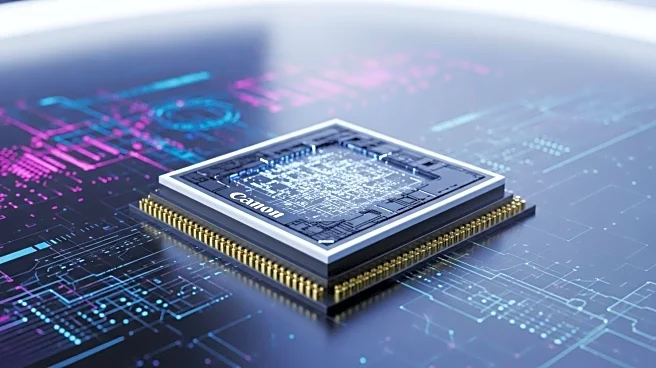What's Happening?
Qualcomm is set to unveil its Snapdragon 8 Elite Gen 5 chipset later this month, which promises improved performance over its predecessor, the Snapdragon 8 Elite. Despite the advancements, the new chipset is expected to maintain similar power consumption levels as the previous model. This development is attributed to Qualcomm's use of TSMC's third-generation 3nm process, known as 'N3P,' which offers a modest 5 percent performance improvement without increasing energy efficiency. The Snapdragon 8 Elite Gen 5 is anticipated to deliver between 5-10 percent better battery life savings at the same clock speeds, thanks to the transition from 3nm to 2nm technology. Qualcomm aims to maximize performance by adjusting the frequencies of the chipset's performance and efficiency cores.
Why It's Important?
The introduction of the Snapdragon 8 Elite Gen 5 is significant for the tech industry, particularly for smartphone manufacturers and consumers seeking enhanced device performance. While the chipset offers improved capabilities, the lack of energy efficiency gains may impact battery life, a critical factor for mobile device users. Qualcomm's decision to focus on performance enhancements rather than power savings reflects the industry's ongoing challenge to balance speed and efficiency. This development could influence the strategies of smartphone manufacturers, especially those in China, who may need to incorporate larger battery cells to accommodate the chipset's power demands.
What's Next?
Qualcomm's Snapdragon 8 Elite Gen 5 is expected to be unveiled on September 23, with potential implications for upcoming smartphone models. Manufacturers may need to adjust their designs to optimize battery life while leveraging the chipset's performance capabilities. The industry will be watching closely to see how Qualcomm's partners integrate the new technology into their devices and whether additional advancements in battery technology can offset the power consumption concerns.
Beyond the Headlines
The Snapdragon 8 Elite Gen 5's introduction highlights the semiconductor industry's ongoing evolution, where performance gains often come at the expense of energy efficiency. This trend raises questions about the long-term sustainability of such advancements, especially as consumer demand for longer battery life continues to grow. The reliance on advanced manufacturing processes like TSMC's 'N3P' underscores the importance of innovation in semiconductor technology to meet the dual demands of performance and efficiency.









